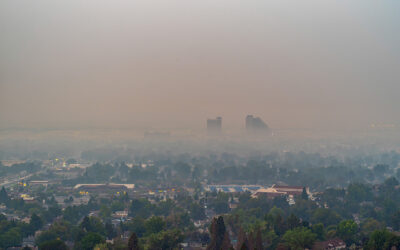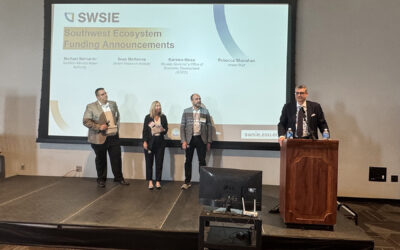New study collecting human experiences emerging from the global pandemic
Reno, Nev: (Tuesday, March 31, 2020) – As the number of people and communities impacted by the novel coronavirus (COVID-19) continues to grow by the hour, a group of social scientists has turned their attention to collecting the stories emerging out of this pandemic.
Using an approach that combines short narratives and responses to questions about people’s experiences with COVID-19, Spryng.io, the Human Systems Dynamics Institute, and the Desert Research Institute (DRI) have launched an online tool for people to share their COVID-19 stories.
“In our connected society, it’s easy to post pictures and tweets about what you’re experiencing at the moment,” says Tamara Wall, Ph.D., an associate research professor at DRI, “but those social media posts are often lost in the noise and the detailed stories behind those moments are never collectively interpreted. Most importantly, the patterns that could have led to our decisions in those moments are never defined.”
With the ability to quickly collect the narratives and stories of the things people are experiencing in real-time researchers hope to make sense of, and learn from, the decisions being made during the COVID-19 pandemic.
“While each of us may be alone in our day-to-day experience, we are participating in an emerging global crisis,” says Glenda H. Eoyang, Ph.D., founding executive director of the Human Systems Dynamics Institute. “Statistics about our behaviors and health status fill the public press and social media, but the patterns of our individual experiences are hidden from view. When we share our stories and make sense of them for ourselves and with others, we will begin to see how the future is unfolding around the world. That is the innovative contribution of this instrument at this time.”
Commonly referred to as “sense-making,” this type of social science research allows the people who share their experiences to also interpret what they’ve shared. They do this by answering a short set of questions through which they convey the meaning behind their experience. This can then illuminate new wisdom and insight, both individually and collectively (as communities and society) and provide lessons to go forward with new resilience and wisdom.
“Only a month or two ago we all had plans — things we were going to do, places we were going to go, people we were going to see, or projects that felt critically important. And now? Now we are faced with re-thinking and re-imagining what our lives are actually about,” explains Ajay Reddy, founder of Spryng.io. “Our challenge in this profound moment of renewed awareness is to discern patterns that emerge out of what looks like chaos. To understand what was influencing and shaping those patterns. To understand why some folks went for toilet paper, while others began making protective masks.”
The research team’s previous work in the area of sense-making has successfully illustrated how understanding patterns in wildland firefighter’s perceptions of extreme fire behavior can help communities better respond to changing climate conditions and large wildfires.
###
Media Contacts:
Justin Broglio, Communications Manager
Desert Research Institute
(775) 762-8320
jbroglio@dri.edu
Jack Speranza, Chief Operating Officer
Spryng.io
(508) 847-3660
jack@spryng.io
The Desert Research Institute (DRI) is a recognized world leader in basic and applied interdisciplinary research. Committed to scientific excellence and integrity, DRI faculty, students, and staff have developed scientific knowledge and innovative technologies in research projects around the globe. Since 1959, DRI’s research has advanced scientific knowledge, supported Nevada’s diversifying economy, provided science-based educational opportunities, and informed policy-makers, business leaders, and community members. With campuses in Reno and Las Vegas, DRI is one of eight institutions in the Nevada System of Higher Education. Learn more at https://www.dri.edu/
Spryng.io combines software and professional services that enable organizations to develop better understandings of the complex environments within which they operate. Just as a telescope or microscope amplifies the natural human ability to see, Spryng delivers a variety of ways to amplify the natural human ability to notice and respond to patterns in complex human systems. By making it possible to discern patterns within human systems at scale (including the ability to monitor how patterns shift and respond to adaptive actions over time), organizations can make more informed decisions that shape change toward desirable outcomes. Learn more at https://spryng.io/
The Human Systems Dynamics Institute builds capacity among individuals, teams, communities to deal with the complexity of day-to-day existence. In public and private Adaptive Action Labs, we guide clients through innovative design, implementation, and assessment cycles to find breakthrough responses to intractable issues. In research and writing, we create and disseminate perspectives, models, and methods for thriving in the 21st century. Learn more at https://www.hsdinstitute.org/


